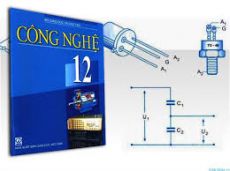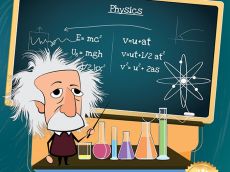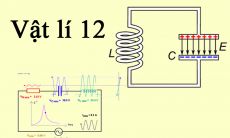Read the following passage and mark the letter A, B, C, or D on your answer sheet to indicate the correct answer to each of the questions.
Of all modern instruments, the violin is apparently one of the simplest. It consists in essence of a hollow, varnished wooden sound box, or resonator, and a long neck covered with a fingerboard, along which four strings are stretched at high tension. The beauty of design, shape, and decoration is no accident. The proportions of the instrument are determined almost entirely by acoustical considerations. Its simplicity of appearance is deceptive. About 70 parts are involved in the construction of a violin. Its tone and its outstanding range of expressiveness make it an ideal solo instrument. No less important, however, is its role as an orchestral and chamber instrument. In combination with the larger and deeper-sounding members of the same family, the violins form the nucleus of the modern symphony orchestra.
The violin has been in existence since about 1550. Its importance as an instrument in its own right dates from the early 1600’s, when it first became standard in Italian opera orchestras. Its stature as an orchestral instrument was raised further when in 1626 Louis XIII of France established at his court the orchestra known as Les vinq-quatre violons du Roy (The King’s 24 Violins), which was to become widely famous later in the century.
In its early history, the violin had a dull and rather quiet tone resulting from the fact that the strings were think and were attached to the body of the instrument very loosely. During the eighteenth and nineteenth century, exciting technical changes were inspired by such composer-violinists as Vivaldi and Tartini. Their instrumental compositions demanded a fuller, clearer, and more brilliant tone that was produced by using thinner strings and a far higher string tension. Small changes had to be made to the violin’s internal structure and to the fingerboard so that they could withstand the extra strain. Accordingly, a higher standard of performance was achieved, in terms of both facility and interpretation. Left-hand technique was considerably elaborated, and new fingering patterns on the fingerboard were developed for very high notes.
Câu 31 : The word “standard” in paragraph 2 is closest in meaning to _______ .
Suy nghĩ và trả lời câu hỏi trước khi xem đáp án
Lời giải:
Báo saistandard = customary: phong tục
Câu 32 : “The King’s 24 Violins” is mentioned to illustrate _______ .
Suy nghĩ và trả lời câu hỏi trước khi xem đáp án
Lời giải:
Báo saiDẫn chứng: Its stature as an orchestral instrument was raised further when in 1626 Louis XIII of France established at his court the orchestra known as Les vinq-quatre violons du Roy (The King’s 24 Violins), which was to become widely famous later in the century.
Câu 33 : What is the main idea presented in paragraph 3?
Suy nghĩ và trả lời câu hỏi trước khi xem đáp án
Lời giải:
Báo saiB. Violin đã được sửa đổi để phù hợp với các chức năng âm nhạc đang phát triển của nó.
Câu 34 : The word “they” in paragraph 3 refers to _______ .
Suy nghĩ và trả lời câu hỏi trước khi xem đáp án
Lời giải:
Báo saiDẫn chứng: ...the violin’s internal structure and to the fingerboard so that they could withstand the extra strain.
Câu 35 : According to the passage, early violins were different from modern violins in that early violins _______ .
Suy nghĩ và trả lời câu hỏi trước khi xem đáp án
Lời giải:
Báo saiDẫn chứng: In its early history, the violin had a dull and rather quiet tone resulting from the fact that the strings were think and were attached to the body of the instrument very loosely.
Câu 36 : According to the passage, which of the following contributes to a dull sound being produced by a violin?
Suy nghĩ và trả lời câu hỏi trước khi xem đáp án
Lời giải:
Báo saiDẫn chứng: the violin had a dull and rather quiet tone resulting from the fact that the strings were thick and were attached to the body of the instrument very loosely
Câu 37 : All of the following are mentioned in the passage as contributing to the ability to play modern violin music EXCEPT _______
Suy nghĩ và trả lời câu hỏi trước khi xem đáp án
Lời giải:
Báo saiKeywords: contributing, ability, play modern violin music EXCEPT.
Clue:
+ “Small changes had to be made to the violin’s internal structure…” – Đáp án D đúng theo clue này.
+ “Left-hand technique was considerably elaborated, and new fingering patterns on the fingerboard were developed for very high notes.” – Đáp án B, C đúng theo clue này.
Như vậy chi tiết sử dụng gỗ quý làm đàn không được nhắc đến trong bài → đáp án đúng phải là A. use of rare wood for the fingerboard and neck.
Đề thi thử THPT QG năm 2021 môn Tiếng Anh
Trường THPT Đội Cấn












